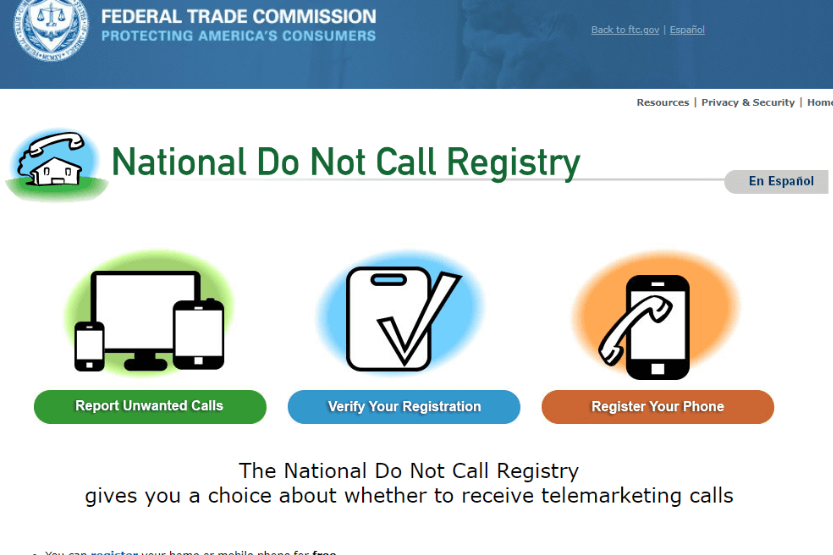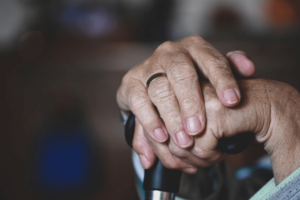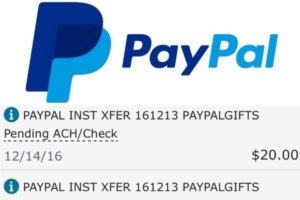Senior Aid Helper calls have become increasingly common in recent years, with many people receiving unsolicited phone calls from individuals claiming to represent the organization.
Unfortunately, these calls are often fraudulent and can lead to serious financial harm for those who fall victim to the scam.
According to reports, scammers posing as representatives from Senior Aid Helper may use official-sounding names and titles to gain the trust of their targets.
They may then ask for sensitive personal information, such as Social Security numbers and bank account details, under the guise of offering assistance with Medicare or other government programs.
In some cases, the scammers may even threaten legal action or claim that the individual’s benefits will be revoked if they do not comply with their demands.
To combat this issue, organizations such as the National Do Not Call Registry have been established to help reduce unwanted calls. However, it is important for individuals to remain vigilant and cautious when receiving phone calls from unknown numbers.
By being aware of the tactics used by scammers and taking steps to protect their personal information, individuals can help prevent themselves from falling victim to Senior Aid Helper phone scams and other similar frauds.
Understanding Senior Aid Helper Calls

The Role of Senior Aid Helpers
Senior Aid Helpers are individuals or organizations that offer assistance to senior citizens in various aspects of their lives. This may include providing information on healthcare, housing, legal issues, and financial matters, among others.
The aim of Senior Aid Helpers is to improve the quality of life of seniors and ensure that they are well taken care of.
One of the ways Senior Aid Helpers reach out to seniors is through phone calls. They may use phone calls to offer their services, provide information, or solicit donations for their organizations.
While some of these calls may be legitimate, others may be scams or fraudulent attempts to obtain personal information from seniors.
Common Types of Calls
Many seniors have reported receiving unwanted calls from individuals claiming to be from Senior Aid Helper organizations. These calls may use various tactics to gain the trust of seniors, such as offering free services or claiming to be affiliated with legitimate organizations.
Some common types of calls from Senior Aid Helpers include:
- Medicare Scams: Scammers may call seniors claiming to be from Medicare and offering free services or equipment. They may ask for personal information such as Medicare numbers or bank account details.
- Donation Requests: Some Senior Aid Helpers may call to solicit donations for their organizations. Seniors should be cautious when giving out personal information or making donations over the phone.
- Health Insurance Scams: Scammers may call seniors claiming to be from health insurance companies and offering better rates or coverage. They may ask for personal information or payment details.
Seniors who receive unwanted or suspicious calls from Senior Aid Helpers should be cautious and not give out personal information over the phone. They can also report these calls to the relevant authorities or seek advice from trusted sources such as family members or lawyers.
Overall, while Senior Aid Helpers can provide valuable services to seniors, it is important to be aware of potential scams or fraudulent calls. Seniors should always verify the legitimacy of organizations and individuals before giving out personal information or making donations.
Why Am I Getting Senior Aid Helper Calls?
Many people receive unsolicited phone calls from Senior Aid Helper, a telemarketing group that offers assistance to seniors. These calls can be annoying and persistent, and some people may wonder why they are being targeted.
There are several reasons why someone might receive a call from Senior Aid Helper. One common reason is that the person’s phone number has been added to a list of potential customers.
This list may have been obtained from a variety of sources, including public records, surveys, and other marketing campaigns.
Another reason why someone might receive a call from Senior Aid Helper is that they have expressed interest in senior services in the past. This could include signing up for a newsletter or attending a senior fair or event.
It is also possible that the person’s phone number was obtained through less scrupulous means, such as purchasing phone numbers from data brokers or using illegal methods to obtain personal information.
Regardless of how the phone number was obtained, it is important to remember that these calls are not necessarily scams or fraudulent.
However, it is always a good idea to be cautious when receiving unsolicited phone calls and to verify the legitimacy of the caller before providing any personal information.
If you are receiving unwanted calls from Senior Aid Helper, there are several steps you can take to stop them. One option is to add your phone number to the National Do Not Call Registry, which prohibits telemarketers from calling registered numbers.
You can also block the phone number or report the caller to the Federal Trade Commission (FTC).
Recognizing Scams and Unwanted Solicitations

Identifying Scam Calls
Senior Aid Helper phone scam is one of the most common scams targeting seniors. To identify a scam call, one should look for common signs that indicate it is a scam. Scammers often use high-pressure tactics to get seniors to provide personal information or make a payment.
They may claim to be from a government agency or a well-known company to gain trust. They may also use scare tactics to make the senior feel like they need to act fast.
To identify a scam call, seniors should be wary of unsolicited calls from unknown numbers. If the caller claims to be from a government agency or a well-known company, it is important to verify the information before providing any personal information or making a payment.
Seniors should also be cautious of calls that ask for payment in gift cards or wire transfers, as these are common methods used by scammers.
Signs of a Telemarketing Scam
Telemarketing scams are another common type of unwanted solicitation that seniors may encounter. These scams often involve selling products or services that are either unnecessary or do not work as advertised.
To identify a telemarketing scam, seniors should look for common signs that indicate it is a scam.
As per FACS (.gov), one sign of a telemarketing scam is a high-pressure sales pitch. Telemarketers may use tactics such as limited-time offers or claiming that the product or service is in high demand to pressure seniors into making a purchase.
Another sign of a telemarketing scam is a lack of information about the company or the product. Seniors should be wary of companies that are unwilling to provide information about their products or services.
After digging into this topic, it’s pretty clear that seniors gotta watch out for those surprise calls and know the tricks scammers use. Always double-check who’s on the line before spilling any personal info or coughing up cash.
If you smell something fishy in a call, don’t hesitate to report it to the big guns like the Federal Trade Commission or the National Consumers League Fraud Center. Being in the know is your secret weapon to keeping those scams at bay!
How Do I Report Spam Calls?

If you’re receiving spam calls from Senior Aid Helper or any other telemarketing group, there are several ways to report them. Here are some options:
1. National Do Not Call Registry
The National Do Not Call Registry is a free service provided by the Federal Trade Commission (FTC) that allows consumers to opt out of telemarketing calls.
If you’re on the registry and you receive a call from a telemarketer, you can report it to the FTC. To register your phone number, visit donotcall.gov or call 1-888-382-1222.
2. Your Phone Company
Many phone companies offer call-blocking services that can help you stop unwanted calls. Contact your phone company to see what options are available to you.
3. Consumer Complaints
You can file a complaint with the FTC or the Federal Communications Commission (FCC) if you receive unwanted calls. The FTC handles complaints about telemarketing calls, while the FCC handles complaints about robocalls and other types of unwanted calls.
To file a complaint with the FTC, visit ftc.gov/complaint or call 1-877-382-4357. To file a complaint with the FCC, visit fcc.gov/complaints or call 1-888-225-5322.
4. State Attorney General
You can also contact your state’s attorney general to report unwanted calls. Many states have their own laws regarding telemarketing and robocalls, and the attorney general’s office may be able to take legal action against the telemarketing group.
By reporting spam calls, you’re not only protecting yourself from unwanted interruptions, but you’re also helping to stop telemarketing groups from harassing others.
In Summary
Senior Aid Helper calls are a type of phone scam that targets senior citizens. Scammers use automated phone calls to reach out to seniors and offer them a variety of benefits and services that are too good to be true.
The goal of these calls is to extract personal information from the victim, such as their social security number, credit card information, or bank account details.
These scam calls are becoming more and more prevalent, and seniors need to be aware of the risks associated with them.
The Federal Trade Commission (FTC) has received numerous complaints about Senior Aid Helper calls, and they recommend that seniors never give out their personal information over the phone.
If you receive a call from Senior Aid Helper or any other organization that claims to offer benefits or services to seniors, it is important to be cautious. Here are some tips to help you avoid falling victim to this type of scam:
- Hang up the phone immediately if you receive an unsolicited call from Senior Aid Helper or any other organization that claims to offer benefits or services to seniors.
- Never give out your personal information over the phone, especially your social security number, credit card information, or bank account details.
- If you are unsure if a call is legitimate, do some research on the organization that is calling you. Look them up online, read reviews, and check with the Better Business Bureau to see if they have any complaints against them.
- Consider signing up for the National Do Not Call Registry to reduce the number of unsolicited calls you receive.
By following these tips, seniors can protect themselves from falling victim to Senior Aid Helper calls and other types of phone scams. Remember, if something sounds too good to be true, it probably is.



![Read more about the article How Much Does It Cost to Mail a 9×12 Envelope? [9×12 Postage Cost]](https://howchimp.com/wp-content/uploads/2021/04/how-much-does-it-cost-to-mail-a-9x12-envelope-300x200.jpg)

